
Roblox Lawsuits Seek Justice for Exploited Children
Tennessee Has Joined Growing Number of States Suing Roblox Corp. For years, parents were told that Roblox was a safe, creative space for children: a digital playground for them to build, explore, and connect. But for many families, that promise collapsed after darker contacts emerged. Children, through no fault of their own, met adults on...
CONTINUE READING
Archdiocese of Washington Sexual Abuse Lawsuits: 2026 Legal Updates & Survivor Rights
Catholic Church Concessions in New York pave the way for Financial Compensation in Washington, D.C. For decades, survivors of childhood sexual abuse within the Catholic Church were told that too much time had passed and that nothing could be done. That message is no longer true. The Yost Legal Group provides legal representation for survivors...
CONTINUE READING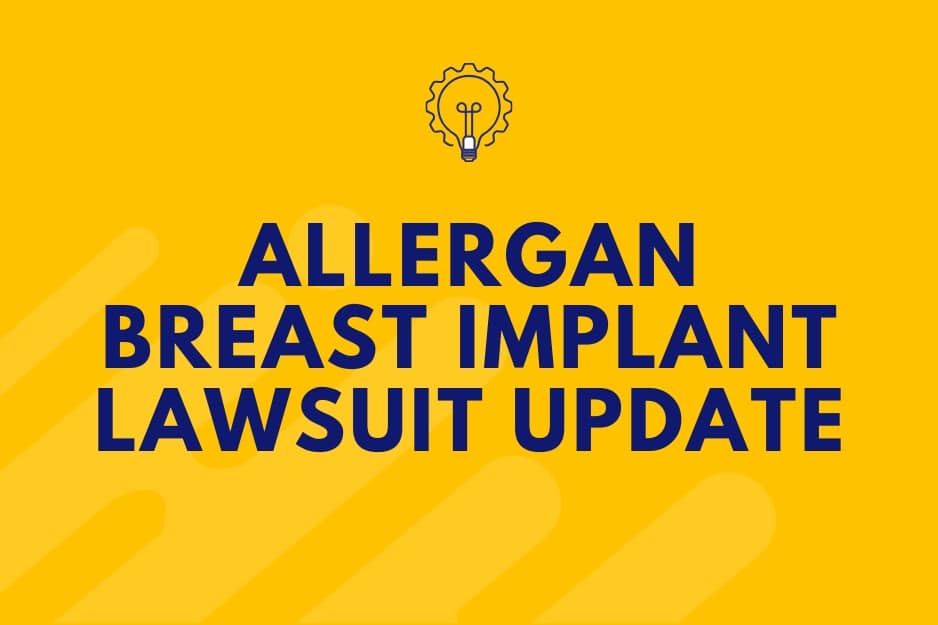
Allergan Breast Implant Lawsuit Update
What You Need to Know About BIA-ALCL Risks If You Were Diagnosed with BIA-ALCL After Receiving Allergan BIOCELL Implants, You May Be Entitled to Significant Compensation. For years, women across the country trusted Allergan textured breast implants for reconstructive and cosmetic surgeries. Many believed these implants were safe. Some were told they were more stable...
CONTINUE READING
Uber Sexual Assault Trial Puts Safety Under Scrutiny
Exploring the Legal Battle Over Uber’s Background Checks, Ignored Complaints, and the Fight for Corporate Accountability in Rideshare Assault Cases For years, survivors of Uber sexual assault by Uber drivers have come forward with eerily similar stories. They have talked about trusting the app. They believed Uber’s claims of thorough background checks. And also trusted...
CONTINUE READING
Depo Provera Alert: FDA Responds to Brain Tumor Risks
New Research Links Depo Provera to Meningioma. If You Were Diagnosed After Using This Birth Control, Learn Your Legal Rights and How To Join The Growing Litigation Depo-Provera was pitched as a simple and effective solution for birth control. “Convenience” was the word most often associated with it. One injection every few months. No daily...
CONTINUE READING
Archdiocese of Washington Lawsuits Seek Justice Under CVA
The Maryland Child Victims Act Allows Survivors of Childhood Sexual Abuse to Hold the Archdiocese Accountable For decades, survivors who suffered sexual abuse at the hands of clergy in the Archdiocese of Washington were told their stories were private, shameful, or too old to matter. In recent years, however, new laws have made civil litigation...
CONTINUE READING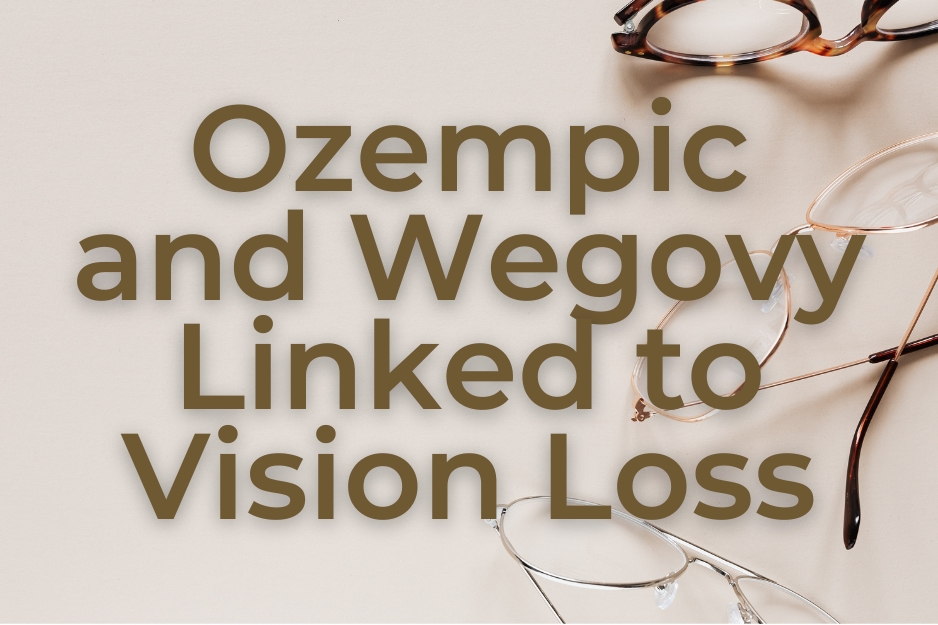
Wegovy and Ozempic Linked to Vision Loss
Novo Nordisk Failed to Warn Patients of the Risk of NAION and Permanent Blindness After a thorough investigation into the link between Ozempic and Wegovy use and a unique form of vision loss, The Yost Legal Group has made the careful decision to take cases for individuals who were prescribed Ozempic or Wegovy and then...
CONTINUE READING
The Hidden Dangers of Gaming Apps: Roblox Lawsuit
Online Predators Are Targeting America’s Children Roblox is one of the most popular online gaming platforms in the world, with tens of millions of daily users. Many of them are young children and teenagers. On the surface, Roblox looks like harmless fun: kids build worlds, play games with friends, and express their creativity. But under...
CONTINUE READING
Maryland Public School Sexual Abuse Lawsuits
Often, public attention around school sexual abuse lawsuits in Maryland has focused on historical cases. Survivors who were hurt long ago, usually silenced by shame, fear, or power, finally found a way forward. The Maryland Child Victims Act (CVA) reopened the courthouse doors. It did this by removing the time limit for childhood sexual abuse...
CONTINUE READING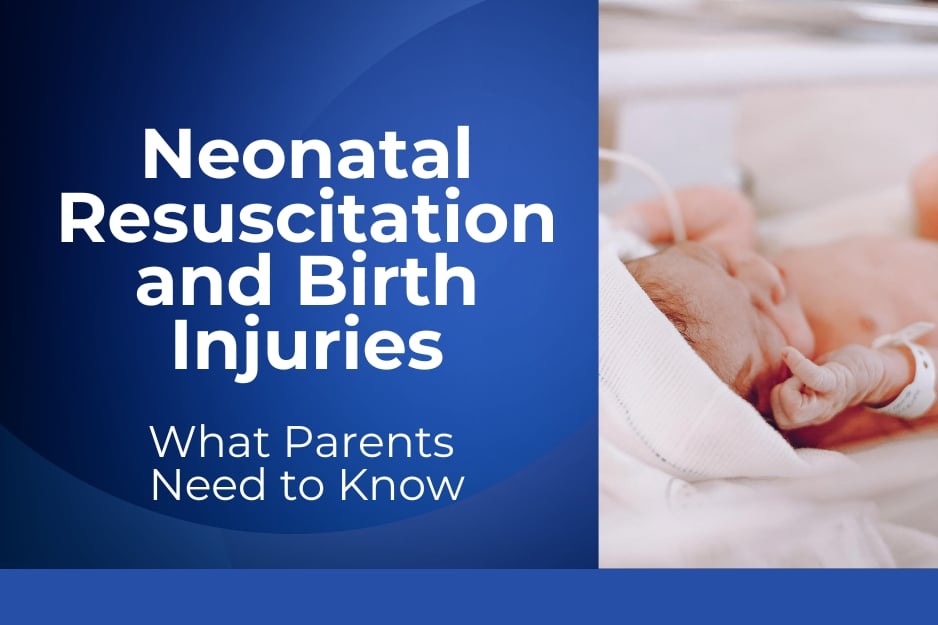
Neonatal Resuscitation and Birth Injuries
Most babies transition from being in utero to breathing room air on their own as soon as they are born. However, about 10% of newborns require some assistance with breathing, and of that 10%, fewer than 1% require extensive neonatal resuscitation measures. The equipment and the medical team members trained to resuscitate newborns are required...
CONTINUE READING
Baltimore’s St. Mary’s Seminary Abuse Lawsuits
A Deep Look at the History, Patterns, and Institutional Failures Tied to St. Mary’s Seminary For decades, Baltimore’s St. Mary’s Seminary and University, the country’s oldest seminary, stood as one of the most influential Catholic formation centers in the United States. Now, reports are emerging about lawsuits involving St. Mary’s Seminary, alleging the abuse of...
CONTINUE READING
Where Delaware’s HB 75 Stands; Latest on Justice for Child Sexual Abuse Survivors
Update on Delaware’s SOL Reform and What HB 75 Could Mean for Survivors Seeking Civil Claims For many child sexual abuse survivors, time has never worked in their favor. While Delaware was an early national leader in statute of limitations reform through its 2007 Child Victim’s Act, many survivors were unable to participate in that...
CONTINUE READING
Learn About Ozempic Vision Loss Side Effects
Over the past few years, drugs like Ozempic and Wegovy have exploded in popularity. Marketed for blood sugar control and dramatic weight loss, respectively, these medications have been prescribed to millions of people across the United States. Alarming research has linked Wegovy and Ozempic to vision loss side effects and blindness. Reports suggest that some...
CONTINUE READING
2025 Truck Crashes Reveal Rising Roadway Dangers
Why Tractor-Trailer Accidents Surge in the Holiday Season, and What Drivers Should Know After the Latest 2025 Crashes For over 36 years, The Yost Legal Group has stood by ordinary motorists, pedestrians, and families after devastating motor vehicle accidents. Over that time, we’ve seen how collisions with commercial trucks can turn lives upside down. Traffic...
CONTINUE READING
HB 462 and HB 464 Bills Stalled in PA Senate Again
A Detailed Update on Pennsylvania’s Stalled Lookback Window Legislation Survivors of childhood sexual abuse in Pennsylvania have been fighting for something important. Many other states already recognize its significance. A chance to seek justice regardless of how long it took them to come forward. The Senate has stalled HB 462 and HB 464 bills again,...
CONTINUE READING
Roblox Lawsuit Update: Online Grooming Put Children at Risk
A Detailed Look at the Roblox Litigation for Negligence, Grooming, and Online Child Predation Roblox Corporation, the company behind one of the world’s most popular online gaming platforms, is facing a wave of lawsuits over its alleged failure to protect children from sexual predators on its platform. Roblox claims to be child-friendly and family-oriented. However,...
CONTINUE READING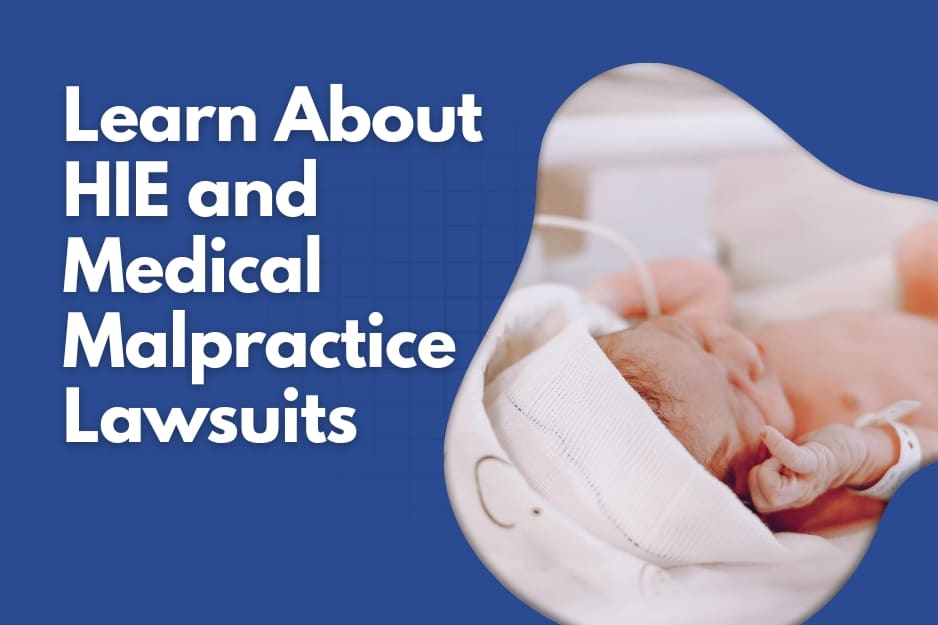
Learn About HIE and Medical Malpractice Lawsuits
Understanding Who Can Be Held Accountable for Your Child’s HIE Birth Injury If your child suffered an HIE brain injury at birth, then you may be looking to take legal action against the responsible party. In such cases, identifying liable parties is crucial. There may be multiple parties that should be the subject of legal...
CONTINUE READING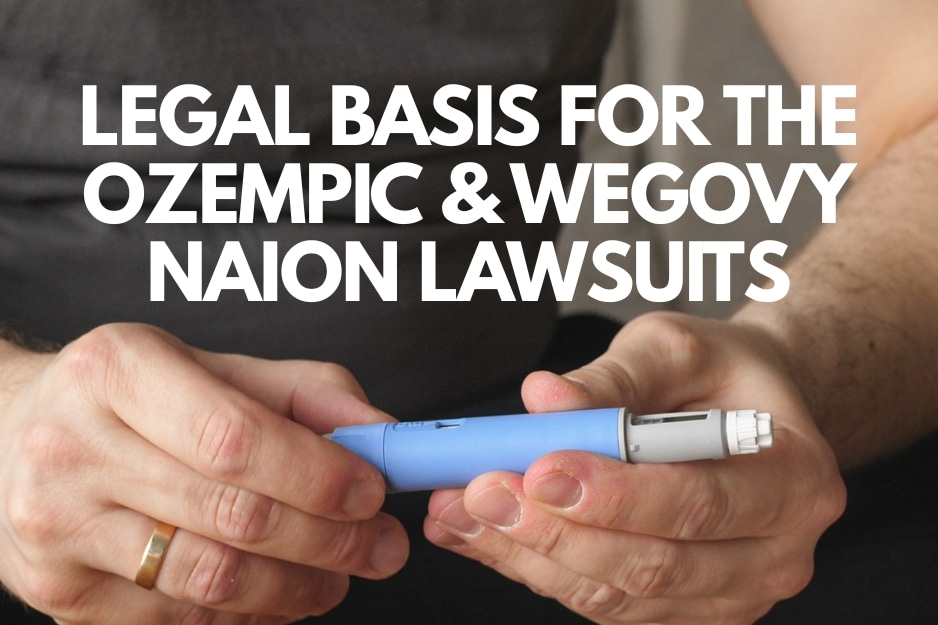
The Legal Basis for the Wegovy & Ozempic NAION Lawsuits
Novo Nordisk (Novo) is currently embroiled in a highly publicized and significant legal battle regarding the adequacy of its warning labels for its medications, Ozempic and Wegovy. Over 1,500 product liability lawsuits against Novo Nordisk allege that the company failed to sufficiently warn of the potentially dangerous risks associated with Ozempic and Wegovy—specifically, vision loss...
CONTINUE READING
Former Sheppard Pratt Nurse Charged with Sexual Abuse of a Minor
The recent arrest of a former Sheppard Pratt nurse on charges of raping a minor patient has sent shockwaves through the Maryland community. It raises serious questions about safety protocols in mental health facilities and the rights of survivors. As details continue to emerge, families, survivors, and advocates must understand what happened, the broader implications...
CONTINUE READING
Perry Hall Gym Teacher Arrested for Child Sex Abuse Charges
The Baltimore community has been shaken by a series of disturbing arrests involving local educators and youth leaders accused of child sexual abuse. The most recent case centers on Perry Hall High School, where a gym teacher was arrested and charged with multiple counts of sexual abuse against minors. This arrest is part of a...
CONTINUE READING
Trucking Collisions and Inadequate Brake Maintenance
One of the most overlooked yet critical causes of trucking collisions is inadequate brake maintenance. Every time you share the road with a massive 18-wheeler, you’re relying on more than just the driver’s skill. You’re trusting that every part of that 80,000-pound machine is in top working order. When something goes wrong—especially with the brakes—the...
CONTINUE READING
Nuchal Cord Birth Injury: A Cause of HIE
Birth injuries caused by a lack of oxygen during labor and delivery can be devastating, with lifelong consequences for both infants and their families. A nuchal cord birth injury can cause newborn HIE. Hypoxic ischemic encephalopathy (HIE) stands as one of the most serious conditions, often resulting from preventable complications during delivery. One such example...
CONTINUE READING
Why Matthew Schlegel’s “Not Guilty” Doesn’t Mean No Accountability
When we hear the words “not guilty,” some may assume that means the criminal case is closed and nothing further can be done. But in the context of alleged child sex abuse by former third-grade math teacher Matthew Schlegel, “not guilty” in a courtroom doesn’t necessarily mean he can walk away without accountability. One way...
CONTINUE READING
Former Dundalk Pastor Arrested on Child Sex Abuse Charges
Baltimore County officials just announced the arrest of former Dundalk pastor Walter Sevillano on charges related to child sex abuse. According to publicly available online court records cited in local reporting, Sevillano faces two counts of fourth-degree sex offense and one count of sex abuse of a minor. Police say the alleged conduct occurred between...
CONTINUE READING
Choosing the Right Legal Advocate After a TBI Accident
The most common types of personal injury lawsuits include motor vehicle accident cases, product liability cases, dog bite cases, and medical malpractice cases, among others. A TBI accident can happen in many types of accidents involving negligence. In any of these cases, a traumatic brain injury (TBI) can occur, which can have short-term or long-term...
CONTINUE READING
Understanding Spinal Cord Injuries: Legal Guidance Matters
Spinal cord injuries (SCI) are life-changing events that can have lasting physical, emotional, and financial impacts. When someone else’s negligence causes a spinal cord injury—whether in a car crash, workplace accident, medical event, or other traumatic incident—it’s critical to understand your rights and take immediate steps to protect your future. A spinal cord injury (SCI)...
CONTINUE READING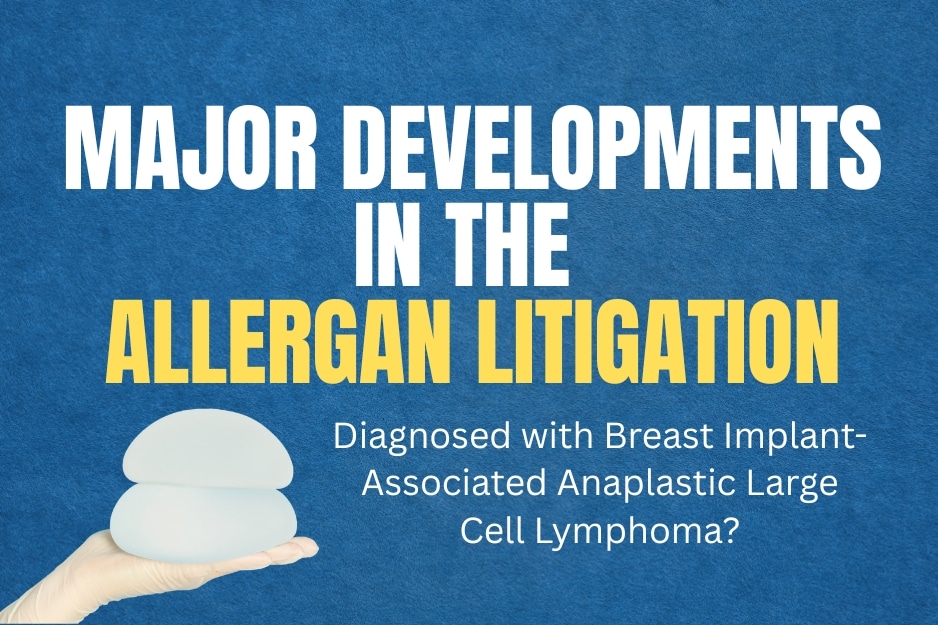
Major Developments in the Allergan Lawsuit Litigation
Following a request from the Food and Drug Administration (FDA), in July 2019, Allergan initiated a breast implant recall of its textured breast implants and tissue expanders. This recall was issued due to the increased risk that Allergan’s textured implants cause BIA-ALCL (Breast Implant Associated Anaplastic Large Cell Lymphoma). Do you qualify to file an...
CONTINUE READING
Hair Relaxer Litigation: What You Need to Know
The national hair relaxer litigation is making waves across the country, shining a spotlight on the potential health risks associated with over-the-counter hair straightening products. As more women come forward with cancer diagnoses, lawsuits are mounting against major manufacturers. If you or a loved one has used over-the-counter chemical hair relaxers and been diagnosed with...
CONTINUE READING
MD Teacher Acquitted of Child Sex Abuse Charges Reassigned
Former Severna Park Teacher Matthew Schlegel Reassigned to Student-Free Location In Maryland, a case involving former Severna Park Elementary teacher Matthew Schlegel has drawn widespread attention and deep concern among families. In June 2025, Schlegel was acquitted of 18 counts of sexual abuse and related offenses. The jury deadlocked on three remaining assault charges, which...
CONTINUE READING
Teacher Christopher Bendann Found Guilty of Child Sex Abuse
,Under Project Safe Childhood, a federal jury returned a guilty verdict against Christopher Kenji Bendann, age 40, of Baltimore. He was found guilty of child sex abuse on: – five counts of sexual exploitation of a minor to produce child pornography – one count of cyberstalking – three counts of possession of child pornography, all relating to his...
CONTINUE READING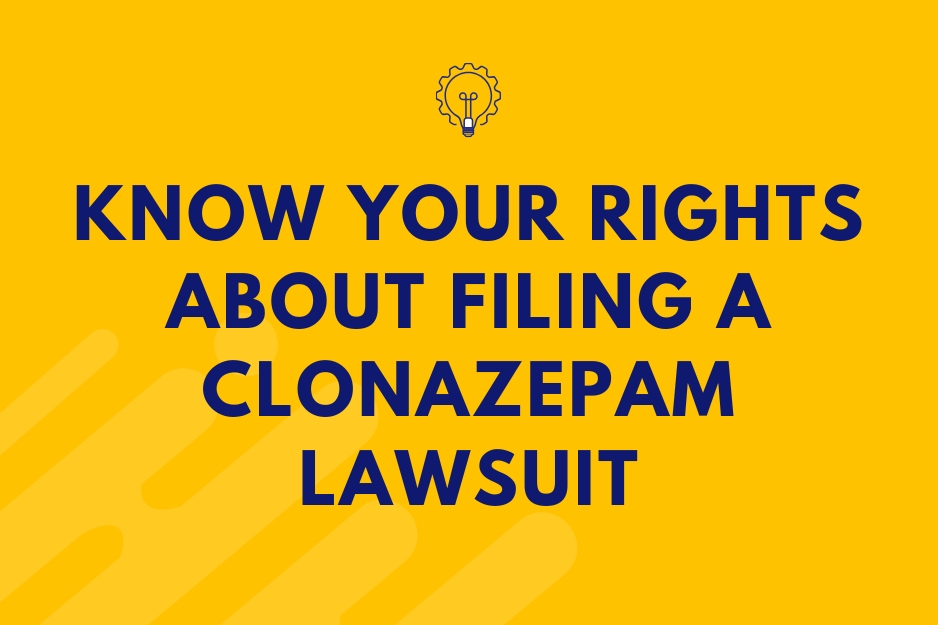
Know Your Rights About Filing a Clonazepam Lawsuit
In November 2024, thousands of patients and families across the United States were shocked to learn about a significant recall involving a widely prescribed anxiety medication: Clonazepam, also known by its brand name, Klonopin. Individuals across the country are filing clonazepam lawsuits. The recall, announced by Endo, Inc.—the drug manufacturer of the orally disintegrating Clonazepam...
CONTINUE READING
Recognizing the Signs of Childhood Sexual Abuse
It is difficult to determine the prevalence of childhood sexual abuse because it is not often reported. Current statistics show that one in four girls and one in six boys are survivors of childhood sexual abuse.[1] Maryland has defined childhood sexual abuse as an act that involves the sexual molestation or exploitation of a minor,...
CONTINUE READING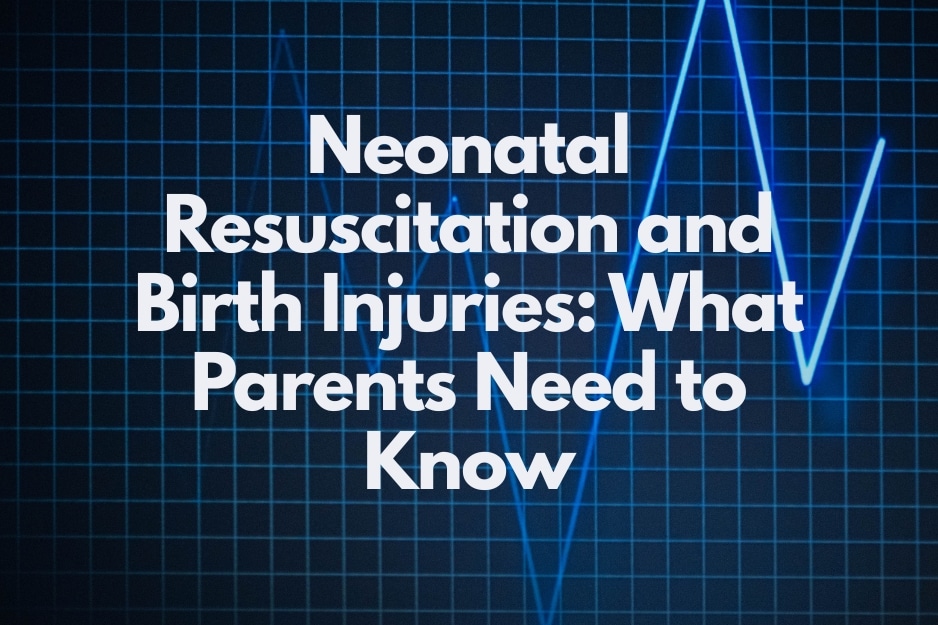
Neonatal Resuscitation and Birth Injuries: What Parents Need to Know
Most babies make the transition from being in utero to being able to breathe room air on their own as soon as they are born. However, about 10% of newborns require some assistance with breathing, and of that 10%, fewer than 1% require extensive neonatal resuscitation measures. The equipment and the medical team members trained...
CONTINUE READING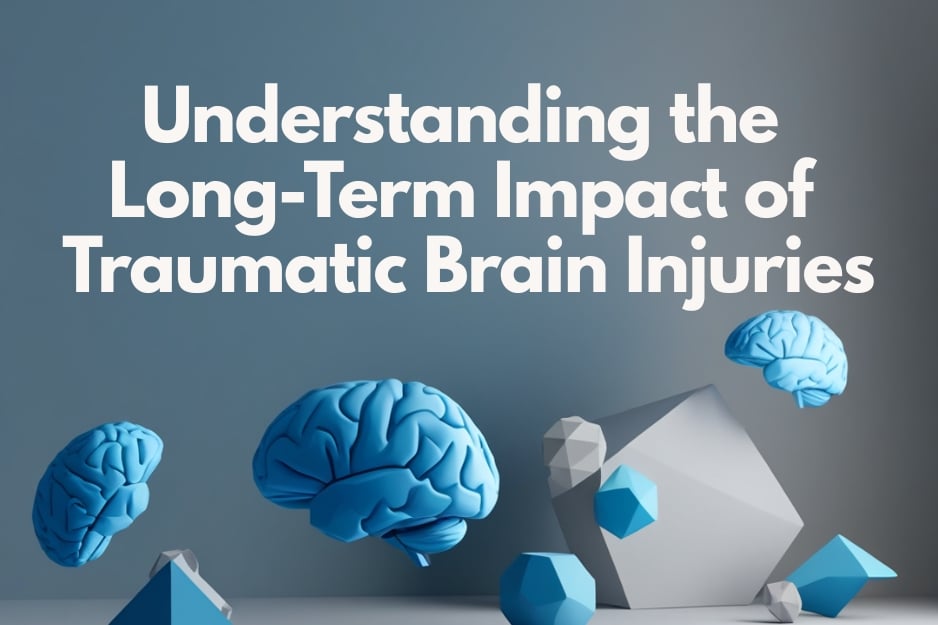
Understanding the Impact of Traumatic Brain Injuries
Traumatic brain injuries (TBIs) are among the most devastating injuries an individual can endure—especially when they happen suddenly in a car accident, pedestrian accident, truck accident, or motorcycle accident. In Maryland, the impact of a TBI can change your life forever, affecting your health, your family, and your future. If you or a loved one...
CONTINUE READING
DC Cardinal Accused of Sexual Abuse Passes Away
Theodore McCarrick, Removed in 2019, Never Faced a Criminal Trial Ex-cardinal Theodore McCarrick faced serious sexual abuse claims from at least 12 minors. This information comes from sources before the Vatican removed him from the clergy. Before Pope Francis removed McCarrick from the ministry in 2019, he was one of America’s most powerful Catholic cardinals....
CONTINUE READING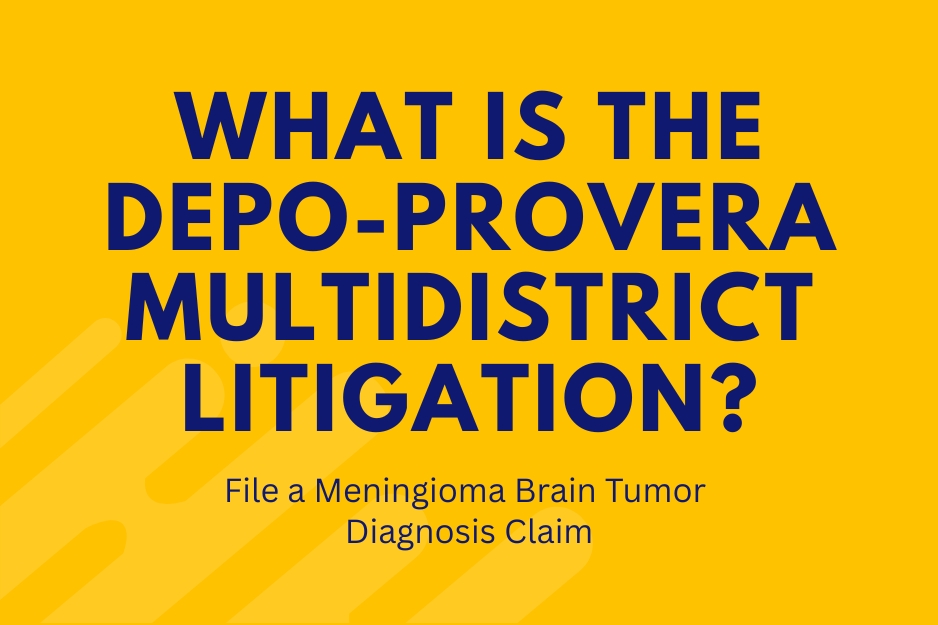
What Is The Depo-Provera Multidistrict Litigation?
Earlier this year (February 2025), the Judicial Panel on Multidistrict Litigation (JPML) issued an order forming the Depo-Provera Multidistrict Litigation (MDL). The Depo-Provera MDL is a consolidation of all federally filed Depo-Provera cases involving women who have taken Depo-Provera birth control shot and have been diagnosed with a meningioma (brain tumor). The MDL is located...
CONTINUE READING
10% of Fatal Crashes Involve Commercial Truck Accidents
Car accidents, no matter how minor, are one of the scariest everyday events a person can experience. However, commercial truck accidents can result in more severe injuries than a regular car accident. According to InsurancePanda.com, approximately 70% of Americans will be involved in at least one car accident over their lifetime. The average driver will...
CONTINUE READING
Local Teacher Found Not Guilty of Child Sexual Abuse
Teacher Found Not Guilty of Child Sexual Abuse In March of 2024, a courageous 8-year-old girl came forward to report the sexual abuse she was experiencing at the hands of her third-grade teacher. That brave act led to many other girls coming forward, alleging that the same 45-year-old male teacher molested them. The sexual abuse...
CONTINUE READING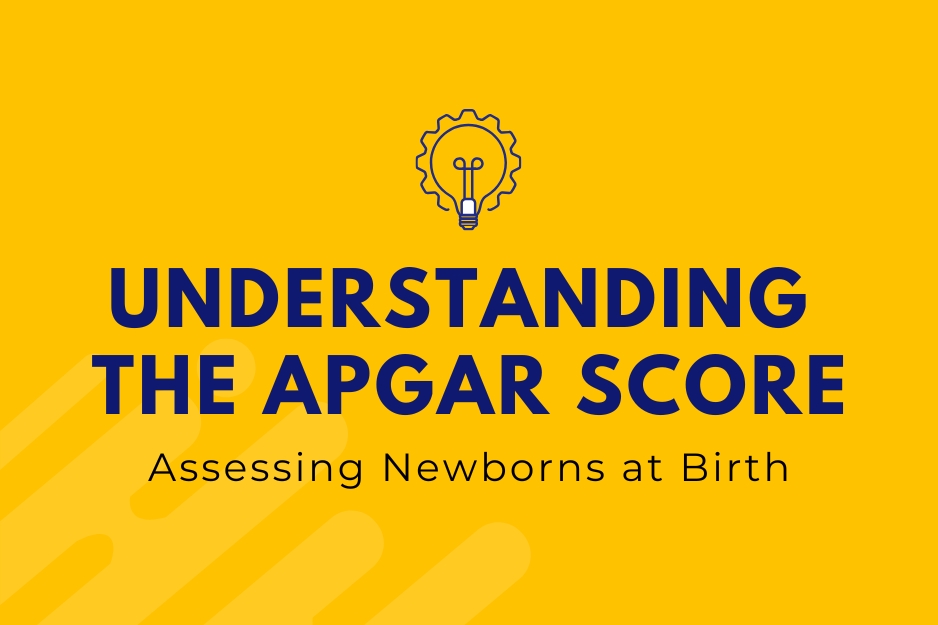
Understanding the Apgar Score: Assessing Newborns at Birth
After a baby is born, medical professionals use the Apgar score as a quick and effective way to assess the newborn’s overall health and immediate need for medical care. This simple scoring system helps doctors and nurses determine how well the baby is adjusting to life outside the womb. It helps indicate if any urgent...
CONTINUE READING
There Are Over 6,000 Motorcycle Accident Deaths Per Year
In 2023, there were 6,335 motorcyclist fatalities. The National Highway Traffic Safety Administration (NHTSA) reported over 6,300 motorcycle accident deaths that year. This was the highest number since 1975. These deaths made up 15% of all traffic fatalities. However, motorcycles account for only about 3.33% of all registered vehicles on U.S. roads. As we enter...
CONTINUE READING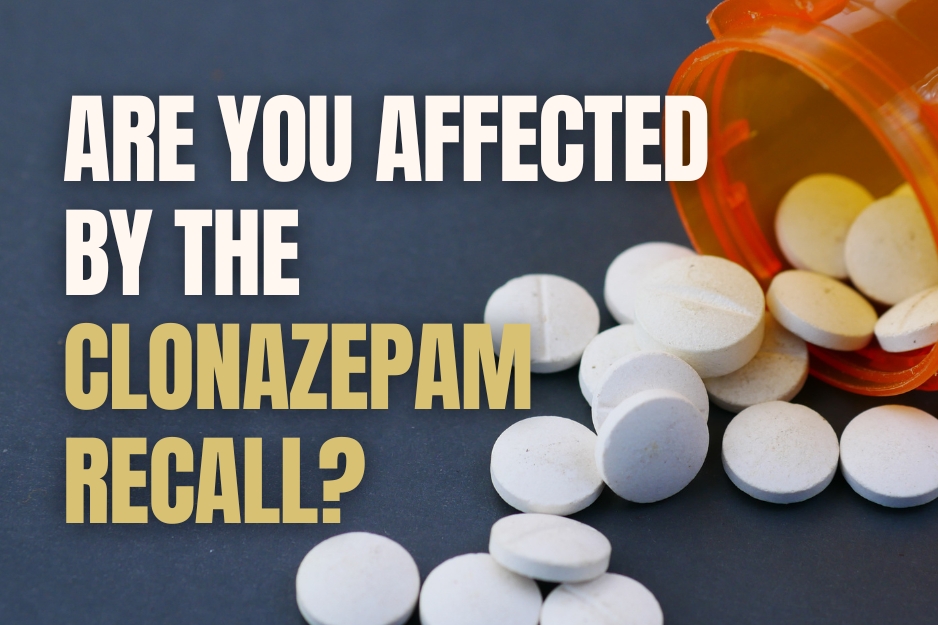
Are You Affected by the Clonazepam Recall?
The FDA Food and Drug Administration has issued a recall for 16 lots of Clonazepam manufactured by Endo, Inc., following a critical labeling error. The product safety recall is hoping to prevent medication errors. According to the safety alert, the strength listed on the product cartons (0.125 mg) did not match the actual strength of...
CONTINUE READING
Hair Relaxer Lawsuit Bellwether Trial Process
Over the past two years, women have been filing hair relaxer lawsuits against manufacturers of chemical hair straightener products. They used hair relaxers and developed uterine, endometrial, or ovarian cancer. They are suing the companies that made these dangerous products linked to their cancer diagnosis. To date, over 10,000 lawsuits for hair relaxers are currently...
CONTINUE READING
Tractor-Trailer Crash Statistics in Maryland
.Tractor-trailer crash accidents are a significant concern on Maryland’s roadways, contributing to a notable percentage of traffic-related fatalities and injuries. The state has made progress in improving highway safety. However, the number and severity of these incidents indicate that we must remain vigilant. If you or someone you care about is injured by a careless...
CONTINUE READING
What to Know about Wrongful Death Claims
Losing a loved one in an accident caused by someone else’s negligence is an unimaginable tragedy, leaving families overwhelmed with grief and uncertainty. Filing a wrongful death claim In Maryland, the law recognizes the profound impact of such a loss and provides a way for families to seek justice through the Maryland Wrongful Death Statute....
CONTINUE READING
Understanding Depo Provera and Its Link to Brain Tumors
Many women use Depo Provera as a convenient and effective method of birth control. This progestin-based hormonal contraceptive is administered via injection every three months. It provides an alternative to daily birth control pills or other methods that require more frequent attention. However, recent findings have raised serious concerns about the safety of long-term use...
CONTINUE READING
MD Law Reduces Compensation for Juvenile Sexual Abuse Claims
The Maryland General Assembly stealthily passed House Bill 1378, rescinding the rights of some sexual abuse survivors if they do not file their claims in court by June 1, 2025. The bill was not supported by a single member of the government other than an obligatory bill sponsor. No one stood up to testify in...
CONTINUE READING
Child Sexual Abuse Claims at Charles H. Hickey Jr. School
In a groundbreaking development, justice is near for survivors filing child sexual abuse claims from the Charles H. Hickey Jr. School in Maryland. Ronald Neverdon, a former staff member at the juvenile detention center, has been arrested on multiple counts of sexual abuse of a minor and third-degree sexual offense. The charges stem from allegations...
CONTINUE READING
Child Sexual Abuse Claims at Mount St. Joseph High School
Child sexual abuse is an unimaginable violation of trust that leaves lasting scars on survivors and their families. In recent years, we’ve seen a growing number of allegations emerge, shedding light on the systemic failures that have allowed such abuse to persist in institutions meant to nurture and protect children. One such troubling case involves...
CONTINUE READING
Catholic High School of Baltimore Child Sexual Abuse Claims
A Timeline of Sexual Abuse Scandals and Accountability In recent years, the Catholic High School of Baltimore has faced intense scrutiny due to allegations of sexual abuse spanning decades. The revelations have shaken the community, highlighting systemic failures in protecting students and addressing complaints. This blog explores the timeline of events, the key figures involved,...
CONTINUE READING
Tractor Trailer Accidents on Maryland’s Highways
Maryland’s highways are bustling with activity, serving as critical arteries for commerce and transportation. However, too many tractor-trailer accidents happen on Maryland’s roadways. A big problem is their massive size and weight, making them a potential road hazard. Big rig accidents can lead to devastating injuries or even fatalities. If you or a loved one...
CONTINUE READING
Uber Driver Sexual Assault of Minor Arrested in North Texas
The Troubling Pattern of Sexual Assault Incidents Involving Rideshare Drivers and What Needs to Change. Ridesharing services like Uber and Lyft have transformed how we commute, offering convenience, affordability, and reliability. With just a few taps on a smartphone, riders can request a ride to take them from one place to another, often feeling safer...
CONTINUE READING
Should you File a Wrongful Death Lawsuit?
Wrongful death statutes play a vital role in ensuring justice for families who have lost a loved one due to another’s negligence or harmful actions. Without these statutes, families historically had no legal recourse for such devastating losses, leaving an appalling implication—it was cheaper for defendants to cause death than injury. That changed in 1852...
CONTINUE READING
Sexual Abuse Claims at Calvert Hall College High School
Childhood sexual abuse is a profoundly traumatic experience that leaves lasting scars on survivors, affecting every aspect of their lives. Many who attended Calvert Hall College High School in Maryland endured unspeakable violations. There is still time to file sexual abuse claims against Calvert Hall College High School. The journey towards healing might feel daunting...
CONTINUE READING
Maryland Supreme Court Upholds Child Victims Act
Child Victims Act: A Historic Victory for Sexual Abuse Survivors In a landmark decision that brings hope to countless survivors of childhood sexual abuse, Maryland’s Supreme Court has upheld the constitutionality of the Child Victims Act of 2023. This momentous ruling, delivered on February 4, 2025, effectively eliminates the statute of limitations for child sexual...
CONTINUE READING
Standing Together Against Institutional Child Sexual Abuse
At The Yost Legal Group, we are dedicated to standing up for individuals who experienced institutional sexual abuse as a minor. Tragically, facilities such as juvenile detention centers, schools, after-school programs, camps, and religious institutions have been sites of unthinkable abuse that have deeply impacted countless lives. Here is a client review from Ryan, a...
CONTINUE READING